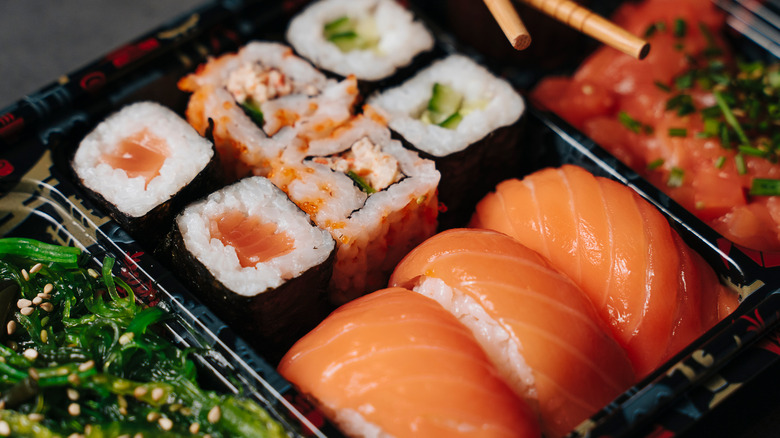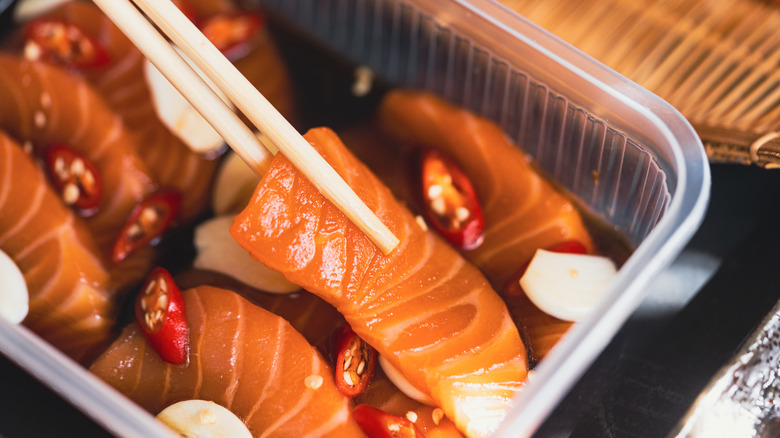Why You Should Think Twice About Eating Gas Station Sushi
There are a few things in life that should automatically raise the hairs on the back of your neck. An abandoned dark alley, coming home to find your front door wide open, or someone walking into your bank in a balaclava are all signs of impending danger. There is, however, one other hazard we should learn to avoid no matter how appealing it may look — that seemingly benign container of gas station sushi.
Aside from the fact that the best way to experience sushi is by watching your chef dazzle you with its preparation and plate it with careful artistry that would please Claude Monet himself, there are much more pressing reasons to purchase your spicy tuna roll at a restaurant instead of a gas station. As it turns out, there's a solid explanation why the term "gas station sushi" has become synonymous with "things you shouldn't trust" — so put down the chopsticks and walk away.
Eating raw gas station sushi is a risk experts wouldn't take
Sushi isn't always on the list of gas station foods you should never eat, but it definitely is when it contains raw fish. As food safety expert Don Schaffner told Lifehacker, things like California rolls and unagi sushi contain cooked fish, making them as safe to eat from a gas station as a ham sandwich. When it comes to raw fish, however, he'd only trust that from a sushi restaurant. Schaffner explains that raw fish has a higher risk of parasites than cooked fish. Plus, tuna scrape, an ingredient often used in low-quality sushi, has been a Salmonella culprit.
Other experts are less concerned about the fish and more about the rice, which can develop dangerous Bacillus cereus when left unrefrigerated, per Health. While store-bought sushi is typically kept cold, it is being handled by gas station attendants rather than restaurant professionals. As Schaffner points out, these employees may not be trained in food safety and may be unaware of potential red flags in your tray of yellowtail rolls. All of this considered, the pickiest of palates must admit that a bag of chips and a Slurpee are preferable to seafood-induced illness.

